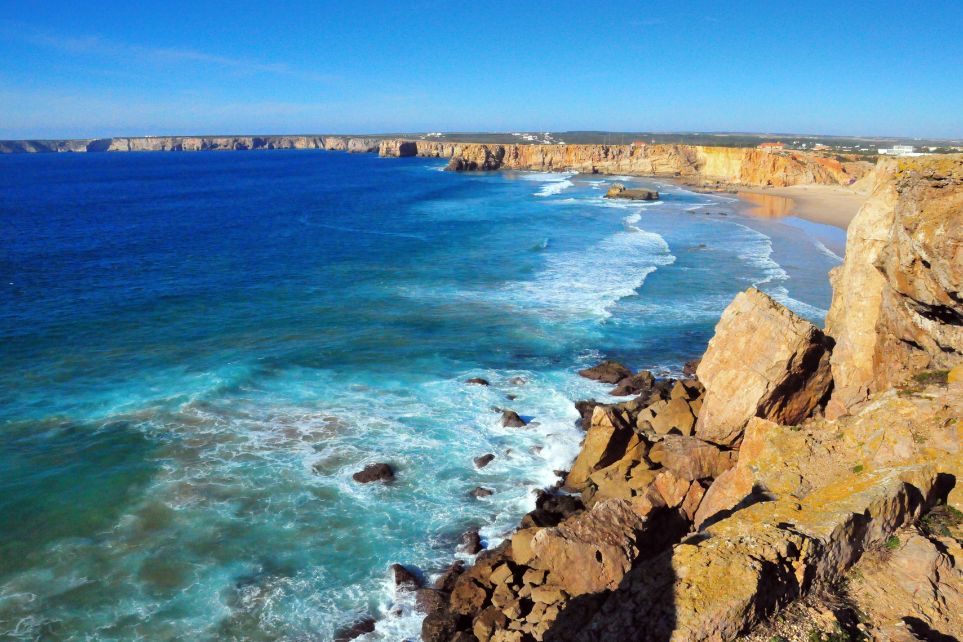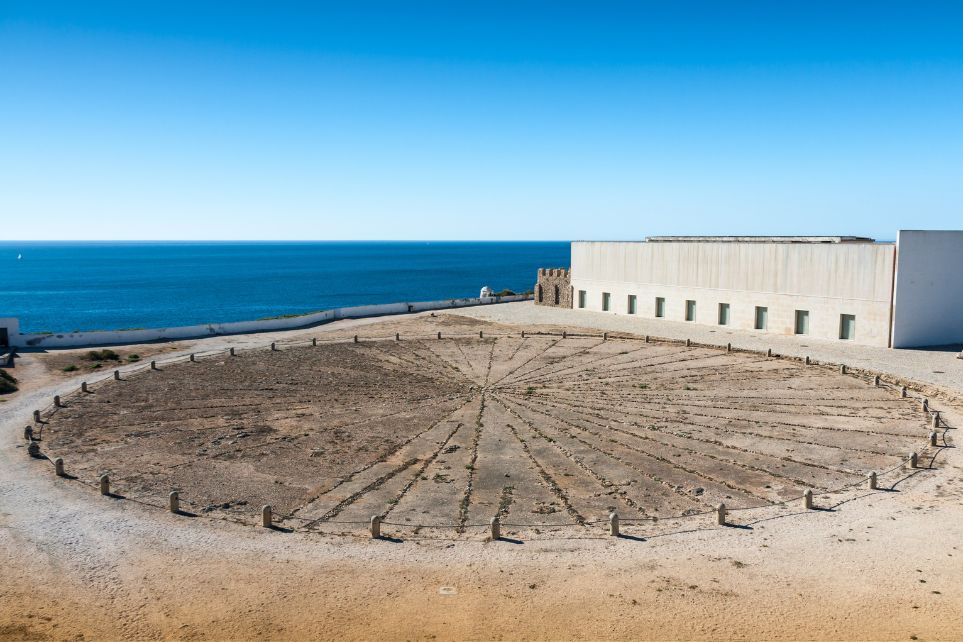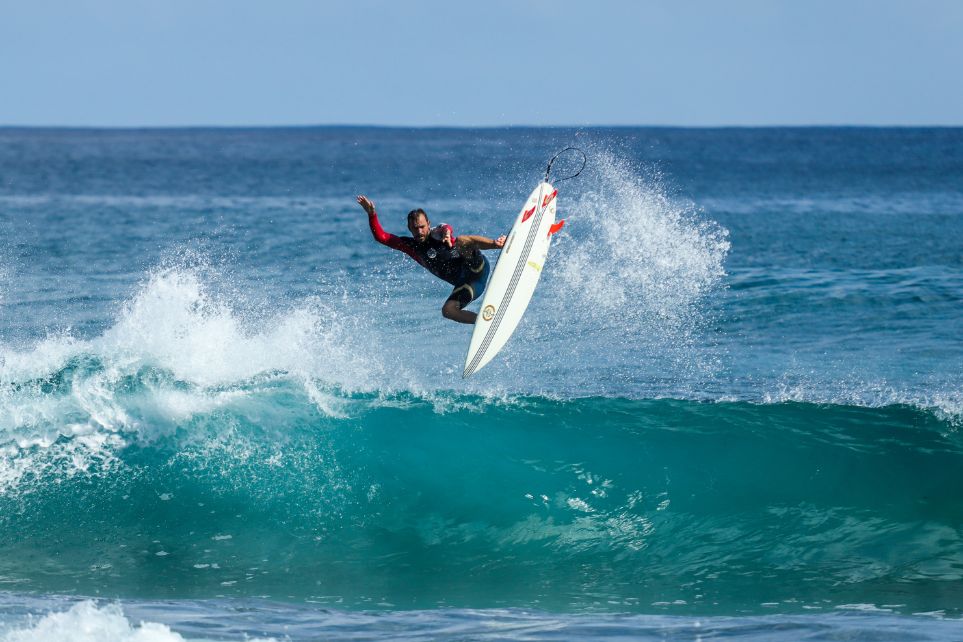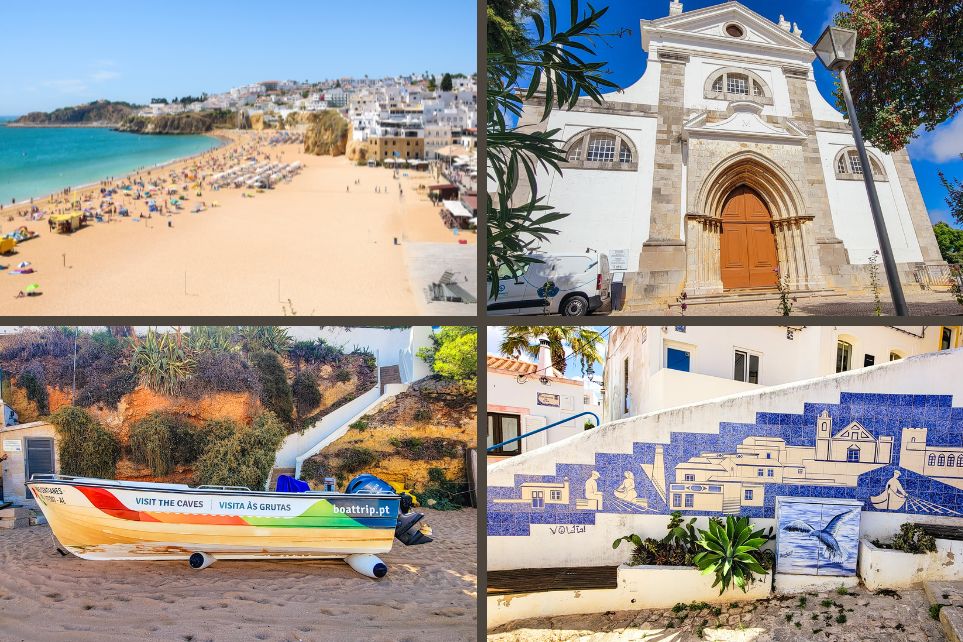
As I stepped onto the windswept cliffs, I knew Sagres was more than a destination—it was a portal to a world where the sea meets the sky and history unfolds against a breathtaking backdrop.
Let’s begin to explore Sagres, a town on the most westerly tip of the Algarve, and indeed all of mainland Europe:
History
Within Europe during the Middle Ages, Sagres was known as the ‘end of the world’ because it was the furthest explored place in the known world to Europeans. This was the case all the way up until the 13th century.
Exploring Fortaleza de Sagres (Sagres Fortress)
Start your journey at the historic Fortaleza de Sagres, a fortress perched on the edge of the continent where maritime legends were born. It lies on a natural peninsula, meaning that it is protected on three sides by the jagged rocks, 200-foot cliffs, and crashing waves below. The fort was built in the 15th century and was classified as a national monument in 1910.
- Note: Although many confuse Sagres Fort with Santo Antonio de Belixe, it lies between the Fort of Sagres and the Sao Cabo Lighthouse. It is permanently closed.
- Hours: 9:00 to 18:00 daily
- Admission: €5

The Sagres Point and Compass Rose
Stand at Sagres Point, where the Atlantic waves crash against the rugged cliffs, and you’ll feel the pulse of the ocean beneath your feet. Nearby, the Compass Rose, an iconic marble slab, invites contemplation as you absorb the historical significance of this maritime crossroads.

Praia do Beliche for Sunset Magic
Cap off your day at Praia do Beliche, a secluded beach with golden sands embraced by towering cliffs. As the sun begins its descent, witness a spectacle of colors that paint the sky, transforming the landscape into a canvas of breathtaking beauty. It’s a serene and poetic end to a day filled with exploration.
Other beaches to consider are Praia do Tonel, Praia da Mareta, Praia do Castelejo, Praia do Amado, and Praia do Zavial.

Hiking
Sagres is perfect for those who are looking for an adventure-packed vacation full of outdoor activities. There are several different hiking trails scattered across Sagres, so be sure to pack accordingly and bring sunscreen, suitable walking shoes, a hat, and plenty of water.

Surfing
Sagres is one of the most desired destinations for surfing in Portugal. Since it’s situated at the very point of the southwesternmost edge of the country, you have two coasts to choose from for surfing.
In the winter, the waves on the Atlantic coastline can be too big, so head to the beaches on the south side. In the summer, when the waves are too small at the south-facing beaches, turn to the west, and you’re sure to find a swell. The surge in Sagres will not disappoint.
Check out these schools if you wish to learn to surf:
- Wavesensations (Surf): This is a great place to stay and learn to surf! Click here to book it.
- Freeride (Surf, SUP, Yoga)
- International Surf School Sagres (Surf)

Getting There
The Sagres region is spread out, and to best see the area, you will need to have a car. While public transportation is available, it can be hard as transport services are pretty patchy.
Car: From Faro, embrace the scenic route with a 2-hour drive along the A22 highway.

PSST: HERE ARE SOME OTHER BLOG POST YOU MAY WANT TO CHECK OUT WHILE VISITING PORTUGAL:
Day Trip From Porto to Braga
13 Best Instagram Spots in Porto
Unique Churches in Porto
Best Markets in Porto
Day Trip to Averio: Romantic City
Things to See and Do in Porto

Sagres welcomes you with open arms, inviting you to immerse yourself in the coastal wonders, historic grandeur, and the indomitable spirit of exploration that defines this extraordinary corner of Portugal. Come, let Sagres cast its spell on you – a spell woven with the whispers of the sea and the echoes of centuries past.
Enjoy your travels! Please read my blogs about other exciting places around the world at Traveling Lens Photography.
If you want to read more follow me on Facebook, Instagram, or Pinterest as I share my journey.
Happy Travels!









Pingback: Algarve Coastal Gem: Lagos - Travel blog | Traveling Lens Photography